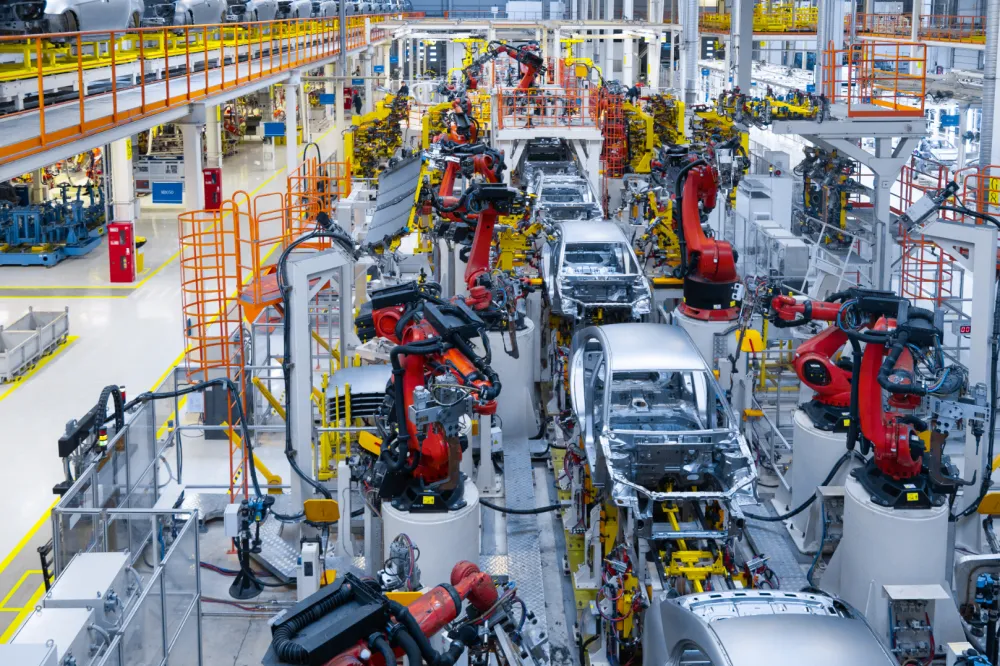Are you plugged into the electric revolution?

Change is in the air, there are wires extending from cars into strange looking parking meters littered around the streets of Dublin.
There are strange looking cars zipping past making virtually no noise. Yes, I am of course talking about electric cars. No longer just some imagined futuristic mode of transport from a sci-fi movie, electric vehicles are fast becoming a common sight in Ireland. Although new electric car sales have only reached 579 as of the end of September 2017 (representing 0.45% of total new car sales in Ireland), that same figure also represents a 25% growth on new electric car sales seen in 2016. Petrol/Diesel-electric hybrids, a stepping stone between petrol/ diesel engines and fully electric engines, have recorded slightly more success registering 4,343 new sales up to the end of September 2017 representing 3.38% of the Irish new car market.
2018 Budget and the Irish Government’s Commitment to Electric Vehicles
The EU has made their commitment to cleaning up car emissions over the next 20 -30 years clear. The UK and France announced plans to ban the sale of petrol and diesel cars by 2040 while Norway has committed to doing the same but by 2025. So where does Ireland stand in all this? Transport Minister Shane Ross recently detailed his department’s vision to get rid of fossil fuelled cars by 2050, along with the desire to ensure that all new cars and vans sold in Ireland are to be zero-emissions capable by 2030.
In the 2018 budget it was expected that practical changes such as free or cheaper parking for electrical vehicles, cheaper tolls and no clamping of electric vehicles while recharging on public streets were to be introduced to incentivise people to make the switch to emission free vehicles but unfortunately this was not to be. The only change made for the coming year was a 0% rate on Benefit-in-Kind (BIK) for one year on electric vehicles, which has been seen as an underwhelming incentive and not likely to drive diesel and petrol car owners to make the switch in the short term. With that said pressure is mounting from the EU and from leaders in the car manufacturing industry to start making changes. It seems inevitable that future budgets will see diesel and petrol taxed more heavily and for the government to introduce more impactful incentives to Irish drivers to encourage them to change to electric or hybrid-electric vehicles.
Existing incentives for electric vehicles include tax relief on vehicle registration tax (VRT) to a maximum of €5,000 for fully electric cars, €2,500 for plug-in hybrid vehicles and up to €1,500 for standard hybrid vehicles. The Sustainable Energy Authority of Ireland (SEAI) offer a grant of up to €5,000 for qualifying electric vehicles when purchased privately providing the purchase price is over €14,000. Tax rates charged on electrical vehicles are also very low - €120 per annum for a fully electric vehicle and only marginally higher for a plug-in hybrid at typically €170 per annum. Finance Minister Paschal Donohoe was also quoted saying he will bring forward proposals for discussion in the New Year in relation to VRT on leased electrical vehicles.
Market Conditions
A significant stumbling block for the popularity of electric cars in Ireland is the accessibility and availability of charging points. A number of car manufacturers are addressing this and a recently announced joint venture comprising Volkswagen, BMW, Ford and Daimler/Mercedes-Benz have started building a network of fastcharging stations for electric cars across many European roads. Here in Ireland this takes the form of a deal with Topaz where they have agreed to install between four and six high-power charging stations at strategic locations around Ireland. These fast charge stations would charge Mercedes’ planned EQ electric SUV, which has a 500km range per full charge, up to 80%, in 15-20 minutes. Tesla have also installed their own 8 bay supercharger station in Co. Laois and have committed to expanding this network. This commitment should have a significant impact on consumer sentiment towards purchasing electric vehicles. Many manufacturers have all-electric, hybrid or plug-in hybrid vehicles on the market already and many of those that don’t currently have electric models are expected to launch models over the next few years. Some of the planned models include Audi’s e-tron Sportback, BMW’s i3, i8 and X5 40e, Jaguar/Land Rover’s I-PACE models and Tesla’s new more affordable Model 3.
Insurance and Electric Cars
What does this electric revolution mean for the insurance industry? Many insurers appear somewhat reserved in covering some of these vehicles. Given their limited presence on our roads and resulting limited insurance ‘experience’, it appears some insurers are adopting a ‘wait and see’ approach. Whether it’s the new technologies involved, the high values of these cars relative to their market peers, the supercar performance of some models, the availability of parts or even the self-drive options that are becoming available. There appears to be only a limited number of insurers currently happy to cover the eclectic mix of electric options currently available. However, as the demand for electric cars inevitably increases over the coming months and years and the electric insurance market grows accordingly, there is undoubtedly a sizeable opportunity for both forward thinking brokers and insurers alike, to embrace the future.
To find out more about DUAL Private Client’s home and motor solutions for your mid and high net worth clients (electric or not!), call Chris Wilkinson or any of the team in Dublin on 01 6640001, or email enquiry@dualprivateclient.ie.
